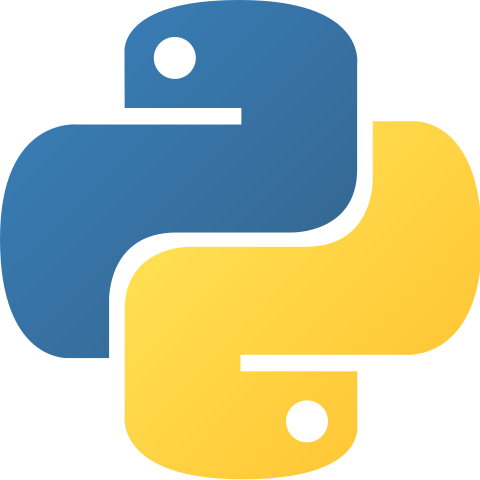
Python Developer Career Certificate Program - NCLAB
This self-paced online Python Developer Career Certificate Program provides you the knowledge, practical experience, competency and confidence to qualify for high-paying Python programmer jobs. The program is suitable for anyone seeking to enhance their career or looking for a new career in a high-demand occupation.
Python development is a rapidly growing field where the demand for qualified candidates far outstrips the supply. Python is the most popular programming language for applications in data analytics, machine learning, Artificial Intelligence, business and finance. Indeed Inc., a job placement company, lists more than 87,000 Python programmer job openings in the United States, and many of those jobs are within easy reach, as positions often are remote. Average starting salary for a Python developer is about $80,000, and one can earn as much as $120,000 in a senior role.
This online program utilizes active, self-paced, Learn-By-Doing training. This innovative approach provides bite-sized lessons, requiring you to show that you have mastered each concept by completing exercises before moving on to the next module. This competency-based approach builds your knowledge as well as your practical experience, both of which are needed to qualify for most Python developer job openings.
This training program takes approximately 230-350 hands-on hours, depending on your existing programming experience at the time you enroll. You are assigned a coach who prepares a personalized roadmap and training timeline for you, and then works with you for the entire duration of the training. Because your training is self-paced and individualized to your schedule, you are able to build a consistent training routine with your coach that does not interfere with your work and family commitments.
During your training, you have both a personal instructional support person and a coach who help you every step of the way. These experts also are proactive in reaching out to you at regular intervals to discuss progress and provide assistance.
Trainees who successfully complete the program receive a Python Developer Career Certificate from Idaho State University and walk away with the professional portfolio necessary to demonstrate ability and qualify for job openings.
All interested trainees should contact an intake specialist prior to enrolling to complete an intake assessment. This interview helps our team of subject experts understand your commitment, aspirations, and work habits to ensure success in the program.
Program Prerequisites
You must successfully complete a two-hour online assessment to gain acceptance to this program. A programming background shortens the time it takes to complete the training, but is not required.
Program Components
To begin with, Python is used to solve real-life problems, therefore you must know a limited amount of math. If in consultation with your coach, it is determined that you need a basic middle school level math refresher, our optional Workplace Math course provides hands-on review and practice to bring you up to speed. In small and simple steps, you review how to work with whole and decimal numbers, fractions, percentages, proportions, simple and compound interest, unit conversions, and solve simple workplace-related math problems. This course includes several ACT WorkKeys Applied Math practice exams, and after completing it, you are ready to take the ACT WorkKeys Applied Math exam. This industry-wide certification is highly valued by employers..
With an appropriate math foundation in place, you proceed to Computational Literacy. This course is waived if you have significant prior computer programming experience, but many experienced programmers like to take it anyway, as a refresher. This course teaches computational thinking which is the most important skill in computer programming. Yes, it is more important than the knowledge of the details of a specific programming language. Namely, without computational thinking skills, learning any programming language has little value. In this visual course, you write programs in simplified Python syntax for a virtual robot to solve various tasks. In this way, you learn how to design algorithms and type code, identify repeating patterns, and use loops to repeat commands and sequences of commands. You also learn Boolean logic, conditional statements, conditional loops, how to define custom commands and functions, and how to break complex problems into simpler ones. Finally, you learn how to use recursion and stochastic algorithms (algorithms that involve randomness) to solve tasks that would be very difficult or impossible to solve otherwise. Taking this course puts you in an excellent position to start learning Python.
Your actual Python training then begins with Introduction to Python. This course provides a detailed and comprehensive overview of the Python programming language. You learn Python by solving programming problems of gradually increasing complexity, using simple calculations, loops, conditions, local and global variables, functions, exceptions, and recursion. You also become proficient in working with fundamental Python data structures, including tuples, lists, and dictionaries. Throughout the course, you are developing a good Python coding style and other good coding habits.
More than 80% of work computers do is processing text. Therefore, in the course Working With Text in Python, you learn how to process, analyze, and manipulate text strings with Python.
Python is known for its powerful graphic capabilities. In the course Plotting and Drawing with Python, you learn how to use the powerful Python library Matplotlib for plotting and drawing.
At this time, you are ready to embark on Software Project 1, where you build your own Graphics Editor, based on Matplotlib. The Graphics Editor is able to create shapes such as squares, triangles, rectangles and circles, fill objects with color, move, scale and rotate shapes, and combine them to make complex drawings. In addition to substantial programming practice, this Software Project provides you with a valuable insight into the principles of good software design.
Most data is stored in files. Therefore, the course Working with Files in Python teaches you how to open files, read data from them, process the data, and write to files.
In Software Project 2 you build your own Image Viewer in Python. The Image Viewer is able to read bitmap images from files, store them as 2D Numpy arrays, and visualize them with Matplotlib. In this Software Project you practice working with files, text strings, and the Numpy and Matplotlib libraries.
The world we live in is driven by data. Therefore, the course Data Visualization with Python teaches you how to visualize data in the form of simple graphs, bar charts, pie charts, color maps, surface plots, wireframe plots, and contour plots. You also learn how to visualize data on 2D Cartesian grids and unstructured triangulations.
Most real-life applications of Python are to some extent related to Data Analytics (DA). Therefore, the DA Minimum course teaches you how to use the Pandas library and perform elementary Data Analytics with Python.
Every Python developer must know the basics of Computer Science (CS) including the binary, octal, and hexadecimal numeral systems. These are also required for the PCEP exam. That’s exactly what you learn in the course CS Minimum.
The PCEP Prep course includes several PCEP practice exams and prepares you to score high on the PCEP exam. PCEP is an industry-recognized certification from the Python Institute that adds a significant weight to your resume. You are encouraged to take the PCEP exam before starting to work on your Capstone Project.
Finally, you complete a Capstone Project where you choose one of two options:
Option 1: Look up open source projects on Github, find one that you like, and contribute to it by submitting a pull request. Your contribution must be consulted and approved by your NCLab instructor in advance.
Option 2: Implement your own program in Python and upload it to Github. The topic of your program is chosen by you, but must be consulted and approved by your NCLab instructor in advance. Typically, a more substantial program is required compared to Option 1.
In both cases you are required to create a free Github user account, and to install a Python IDE on your own computer or laptop (we'll help you with that).
Participation in the program requires a personal computer, high-speed internet access and an email address.
The Idaho State University, Continuing Education and Workforce Training Python Developer Career Training is delivered through a partnership with NCLab, an innovative STEM career training provider.
Click Python Developer Career Certificate Program to learn more.


